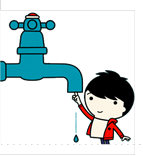

题目列表(包括答案和解析)
听力部分
一、第一节 听下面十段对话,每段对话后有一个问题,在各题所给的三个选项中,选出一个最佳选项。每段对话只听一遍。(本题共10分,每小题1分)
听第一段对话回答第1题。
1.What’s the season?
A.Spring.
B.Summer.
C.Winter.
听第二段对话回答第2题。
2.What time would the man like to see the woman?
A.Earlier than 6∶00.
B.At 6∶00.
C.At 8∶00.
听第三段对话回答第3题。
3.What does Tom want Mary to do?
A.To keep his new phone number.
B.To tell Andrew his new phone number.
C.To tell Andrew to call him at his new number.
听第四段对话回答第4题。
4.What colour is the skirt?
A.Black.
B.Yellow.
C.Light blue.
听第五段对话回答第5题。
5.What did the man thank for?
A.The last bus.
B.The wonderful lunch.
C.The delicious supper.
听第六段对话回答第6题。
6.Whose successful news is it?
A.Tina’s.
B.Amy’s.
C.Mr.Jones’.
听第七段对话回答第7题。
7.What does the man invite Judy to do?
A.To join in a birthday party.
B.To join in a dance.
C.To join in a dinner.
听第八段对话回答第8题。
8.Which floor is Mr.Johnson’s office on?
A.The ninth floor.
B.The nineteenth floor.
C.The twelfth floor.
听第九段对话回答第9题。
9.What does the woman mean?
A.Having sports is good for health.
B.Drinking lots of water is bad for health.
C.Drinking icy water after sports is bad for health.
听第十段对话回答第10题。
10.How does Jimmy feel?
A.Unhappy. B.A little tired. C.Very well.
第二节 听下面三段对话,每段对话后有3到4个问题。在各题所给的三个选项中,选出一个最佳选项。每段对话听两遍。(本题共10分,每小题1分)
听第一段对话回答11-13题。
11.What is the report about?
A.Mrs.Green’s trouble.
B.Mr.Green’s anger.
C.The city buses.
12.Why does Mrs.Green complain about the city buses?
A.Because the buses don’t wait for her.
B.Because the buses don’t arrive on time.
C.Because there is no timetable for the buses.
13.How long did Mr.Green wait for the bus once?
A.15 minutes.
B.50 minutes.
C.The city buses.
听第二段对话回答14-16题。
14.Why does the woman like to watch the football game on TV?
A.Because she doesn’t like to go to the stadium.
B.Because she thinks it expensive to watch it in the stadium.
C.Because she can watch the football game more clearly on TV.
15.How does the man like watching the football game in the stadium?
A.No fun.
B.Very exciting.
C.Very noisy.
16.What will they do tonight?
A.They will watch the game at home.
B.They will watch the game in the stadium.
C.They will watch the game separately(分别地)
听第三段对话回答17-20题。
17.What is the relationship between Mr.Smith and Helen?
A.Classmates.
B.Teacher and student.
C.Father and daughter.
18.Where was Helen’s family two years ago?
A.In England.
B.In America.
C.In France.
19.What company is Helen’s father working for?
A.An American company.
B.A French company.
C.A British company.
20.What is Helen’s mother?
A.A worker.
B.A world traveller.
C.A housewife.
第三节 听短文,根据短文内容在各题所给的三个选项中,选出一个最佳选项。短文听两遍。(本题共5分,每小题1分)
21.When did David see the accident?
A.In the morning.
B.In the afternoon.
C.In the evening.
22.What was the man doing while he was driving?
A.Eating a hot dog.
B.Drinking a bottle of milk.
C.Talking on his mobile phone.
23.What happened then?
A.The sports car crashed into the truck.
B.The truck crashed into the sports car.
C.The sports car and the truck crashed into each other.
24.How was the woman at first?
A.Too angry to move.
B.Too frightened to move.
C.Too badly hurt to move.
25.Who was hurt badly?
A.The woman.
B.The man.
C.No one.
Droughts (干旱)are common in Kenya . Before ,they came every 10 years ,but now they seem to be hitting us more often and for a longer time .
We gave the droughts names :“longoza”was the drought when many animals died ; there was the drought of the “planes” because food was dropped from the air by planes; and one particularly bad drought was called “ man who dies with his money in his fist (拳头)”,because ,even if there was money , there was simply no food to buy .
I was born in 1951 in Machakos. From what my mother tells me , when I was 7, there was a serious drought . I clearly remember the terrible weather and the hunger. I can’t tell you how many times I went to bed without eating . “ I slept like that ,” is how we described it . I can’t count the number of days when “ I slept like that,” or describe the feeling of going to sleep hungry ,knowing I’d wake up and there would still be no food for breakfast.
My father would leave early in the morning carrying a little basket to ask for food on credit (赊欠). Each night he would return home around 10:00p.m. My mother would try to encourage me by telling me to keep the water in our pot boiling so that when my father arrived we could quickly cook any food he brought in the already prepared water . I would keep the fire burning and the water boiling , along with the hopes that we would eat that night. But my father would arrive frustrated and empty -handed. And I would sleep like that.
【小题1】The best title for the text is ________.
| A.A Hungry Childhood Caused by Droughts |
| B.Food and Hunger |
| C.Protecting the Environment |
| D.Droughts and Their Names |
| A.Many animals needed food dropped by planes. |
| B.People had to eat animals because of hunger. |
| C.Many animals died because of the droughts. |
| D.People died of hunger even if they had money. |
| A.To wait for her father to come back to have supper. |
| B.To cook the food that her father would bring back. |
| C.To keep her house warm all night. |
| D.To make her hungry mother happy. |
| A.I was disappointed when my father came back empty-handed |
| B.I felt sorry because my family got hungry again |
| C.I went to sleep with no food for breakfast. |
| D.I went to bed with nothing to eat |
| |||||||||||||||||||||||||||||||||||||||||||||||||||||||||||||||||||||||||
| |||||||||||||||||||||||||||||||||||||||||||||||||||||||||||||||||||||||||

| 小题1: |
|
| 小题2: |
|
| 小题3: |
|
| 小题4: |
|
| 小题5: |
|
| 小题6: |
|
| 小题7: |
|
| 小题8: |
|
| 小题9: |
|
| 小题10: |
|
| 小题11: |
|
| 小题12: |
|
| 小题13: |
|
| 小题14: |
|
| 小题15: |
|
湖北省互联网违法和不良信息举报平台 | 网上有害信息举报专区 | 电信诈骗举报专区 | 涉历史虚无主义有害信息举报专区 | 涉企侵权举报专区
违法和不良信息举报电话:027-86699610 举报邮箱:58377363@163.com